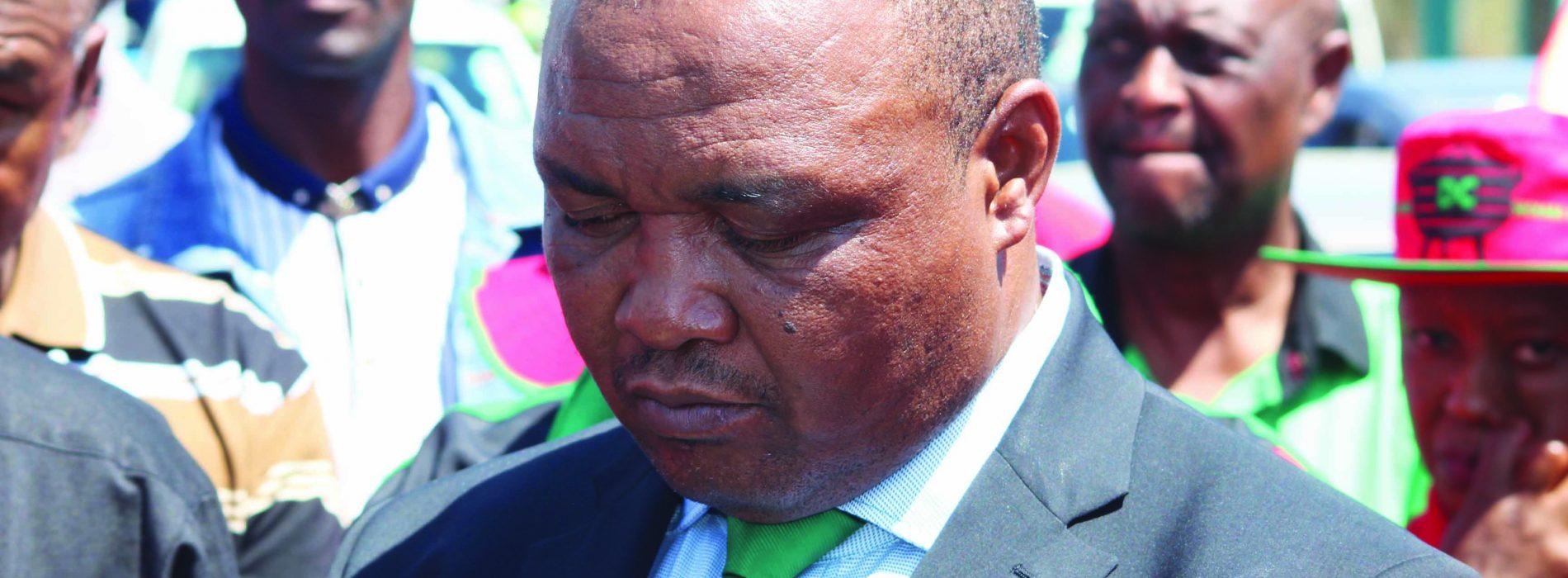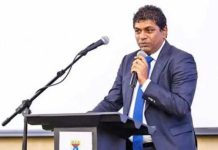Africa-Press – Lesotho. SOME analysts and many Basotho are increasingly raising questions and concerns about the direction, content, speed, objectives and drivers of the National Reform Process.
Their apprehension is understandable, given that nothing much has changed since the first session held in November last year. My view is that part of the reasons for the perceived delay, lack of progress or confusion surrounding the reforms is that we are trying to do too many things at once.
I suspect we are chewing way more than we can swallow. But the main problem, in my opinion, is that we are not clear on what is it that we want to achieve from the process.
We know that we want a better Lesotho but we are not clear on the directions to that destination. Specific goals were not spelled out in advance for each sector that is targeted by the reform process.
As such we are unable to measure whether we are on course to attain the goals or we have already achieved them. Because there is still no consensus on what the reforms should achieve it is highly unlikely that there will be unanimity on both the progress and the goals.
We are yet to agree on the immediate causes of the current crisis that must be resolved or addressed before embarking on systemic medium-term economic and political reforms that would lead to political stability, economic growth, employment generation and improve the lives of Basotho. I do not wish to be sucked into the debate on whether or not the reform process has been hijacked by some, as some analysts have postulated.
I want to share perspectives I gained from direct participation in the financing of economic and institutional reforms during my 20 years with the World Bank in Washington DC, first as executive director and later, for 15 years, as vice-president and secretary of the board that approved loans and credit.
I was part to the management recommendations that financed several countries in Africa and Asia that emerged from conflict and those that changed their economic management systems like China, Vietnam and the former Soviet Republics.
During that time I learned several lessons regarding reforms. The first is that the precondition for successful reform implementation is a leadership committed to establishment of a peaceful and united country that pursues a better life for all its citizens, including the weak and vulnerable.
The second is that implementation of economic, political and social reforms are a complex process of continuous systemic improvements. It is not an event.
Third, reforms are complex and require a clear identification and understanding of the nature of the initial conditions. Failure to properly understand these conditions result in wrong solutions.
Fourth, new reforms must take account of what has happened or has been done in the past. If that does not happen the country will engage in multiple ‘start and go’ processes but without progress.
The Lesotho we want: Dialogue and Reforms for National Transition provides the vision, overview and roadmap of the reform process. It makes passing reference of reports that analyse the fundamental causes of the current crisis and identifies reforms that should form the bedrock of the transition.
It specifically lists reports from the Commonwealth Secretariat and from the Lesotho parliamentary delegation that that visited New Zealand. That parliamentary delegation was led by then Deputy Prime Minister, Mothetjoa Metsing, and comprised of more than 20 MPs.
There is also SADC’s Phumaphi Commission report and various communiqués from SADC and the United Nations on the Lesotho situation. These reports explain the origins of the Lesotho crisis and prescribe solutions.
In the broader sense you could say they observe two categories of issues that need attention during the reform process. The first is that of the criminality and abuse of power that caused the current crisis.
The second is the non-criminal actions of the government, its officials and the security forces. The Phumaphi report recommends that acts of criminality, abuse of power and others that undermine the rule of law should be prosecuted.
The Commonwealth Secretariat report explores what Lesotho should do to deal with frequent elections necessitated by floor-crossing in parliament. It also talks about the need to create a neutral and professional civil service that serves all citizens and is staffed on merit rather than political affiliation.
From 2014 Basotho witnessed how personal interests of leaders can destabilise a country. They saw how MPs were promised a free ride on their loans from a private bank if they successfully passed a vote-of-no-confidence in the prime minister.
Because the government was going to pay the loans on their behalf the MPs did not need to worry about it collapsing. This gave rise to the 2015 election.
The second incident was when the deputy prime minister signed an agreement with the leader of the opposition to form a new coalition government. SADC later intervened to stop the implementation of that agreement.
The last noncriminal cause of the crisis was the decision by the seven-party coalition government to link all appointments of principal secretaries to the parliamentary term of the government.
Since then the trend of appointing principal secretaries primarily on political credentials rather than professional qualification has continued and is deepening in the public service. The criminal activities were the alleged killings, bombings and attacks that happened during that time.
It is instructive that ‘The Lesotho we want’ document does not refer to the Vision 20/20 whose drafting included major groups in Lesotho and was launched by both the prime minister and His Majesty.
Many will recall the ‘Poverty Strategy Paper’ which was submitted to the International Monetary Fund (IMF) and the World Bank for review and support. These documents received positive support from stakeholders. There was also the sixth National Development Plan prepared under the first coalition government but completely ignored by the second coalition.
The question we should be asking is how long the international community can continue to support plans, strategies, reforms and visions launched with fanfare but are subsequently shelved and ignored? What confidence do we have that the outcomes of this reform process will be implemented? My views which are based on experience on political and economic reforms are that:
l The world is full of templates on reforms which Lesotho can adapt to its unique circumstances and implement
l SADC and the Facilitator are not going to support Lesotho forever in its ‘start-and-stop’ approach to the economic, political and social reform.
At some point Lesotho should realise that these reforms are necessary for the creation of a stable environment that enables accelerated economic growth, national unity, investment and employment creation.
l The goodwill that Lesotho enjoys from the international community will not be there for long because the world is changing. Most of our traditional international partners are grappling with their own domestic issues that need attention.
The money they used to pour in Lesotho’s programmes is running out because of economic problems. l The unemployment, poor quality education, lack of land, high levels of crime and lack of policy predictability do not augur well for private capital inflow into Lesotho.
Given this reality the next logical question is what should the government do to get the reform process moving again. My suggestions are that:
l Government should prioritise the reform programme and implement it as soon as possible.
Those measures and reforms that relate to criminal activities and rule of law should be left to the courts in the meantime. This will allow the government to focus on the broader issues.
l Quickly adopt parts of the reports from the Commonwealth Secretariat and the New Zealand delegation that makes recommendations on ways to reduce floor-crossing and reforms to stabilise and depoliticise the civil service.
This will remove the current “State Capture”. l We should agree on a threshold for political parties to receive PR seats and party funding. l We should review each specific reform proposal for measurable potential benefit to the country.
We have to ask ourselves if some reforms are urgent. Remember some things can wait while others cannot. l The Leaders’ Forum should be supported by a small team of technical experts that will be supported by one or two international experts.
The experts will assist the SADC Facilitator and the Leaders’ Forum to negotiate concrete reforms that can be submitted to Parliament and enacted quickly while the multi-sectoral dialogue continues.
In their negotiations the leaders should be guided by national interest and unity rather than the myopic and impartial interests of their political parties. The current programme of reform process lacks prioritisation of the five areas mentioned above.
Focusing on these areas will kick-start a dialogue among leaders and political parties whose outcome can be quick and measurable, thereby inducing confidence to take further reform steps.






